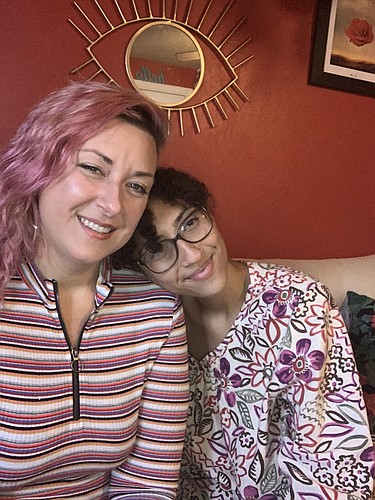- January 2, 2025
-
-
Loading

Loading

As the school district moves into its second semester under COVID-19 protocols, concerns remain over the mental health of students who continue at home for virtual schoolwork.
Throughout the pandemic, district administrators and school board members prioritized mental health check-ins. Teachers have built in time for “mindful minutes” during their lessons, and students and families are encouraged to use the district’s Inner Explorer app, which directs users through various mindfulness techniques.
Even so, some students struggle. Sarah Miller, a family navigator for National Alliance for Mental Health in Sarasota and Manatee counties, said that there are ways to overcome challenges during times of isolation.
“Social isolation is very common with a tendency to retreat into a virtual environment,” she said.
“It appears the limited social engagement opportunities seem to have put an additional strain on youth’s ability to want to connect, which tends to then create power struggles within many families. This lack of connection further exacerbates any preexisting mental health challenges as these conditions go untreated or addressed.”
As a family navigator — a new position for NAMI — Miller works with families who have a child going through the mental health system. She is able to offer them a deeper look at the system and empathize with them because she has been through similar challenges herself.
When Miller’s daughter, Vanessa, was in high school, she began experiencing mental health challenges. The duo had to learn how to make mental health a priority and what that looked like when navigating different mental health providers.
“This position allows me to connect with other families who are looking for a lot of the same services or community resources or even just someone to talk to who understands and has been through something similar,” Miller said.
One of the programs that helped Miller was NAMI Basics, which is a support group for parents.
Although she found the program helpful, Miller said the navigator position allows her to empathize with families in a way that is sometimes difficult in other settings.
“Sometimes our closest family and friends just don’t really understand,” Miller said. “As much as they love you, unless you’ve been through it yourself, you don’t necessarily feel like you can talk about it with them.”
One of the best ways to work through anxiety or depression for students, Miller said, is by creating more engagement opportunities. Because children don’t always feel comfortable sharing with adults, NAMI is offering one-on-one youth peer support.
“These youth peers are able to understand much of what youth are going through and provide opportunities for youth to connect, find support and hope while practicing social skills in a safe, nonjudgmental environment,” Miller said.
In addition, the youth peers lead monthly group activities to keep youth connected through fun and activities that promote social and emotional wellness, such as a Virtual Youth Open Mic.
Whatever method families decide is best for them, Miller said it is important that all involved know they are not alone.
“We are here to help by offering information, resources, peer support, groups, education and advocacy, all at no cost,” Miller said.